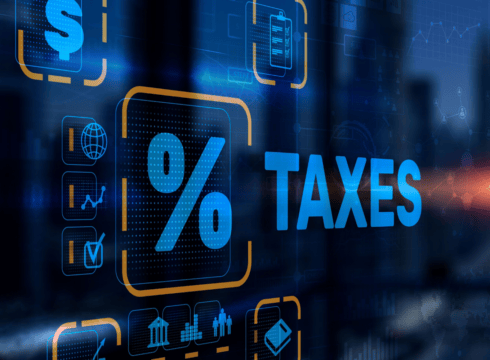The industry associations are of the view that differential tax treatment for listed and unlisted securities is distorting asset allocation decisions
IVCA says alternative investments are very foundational in terms of the nature of capital
On the other hand, internet industry body IndiaTech sent a submission to the government
Inc42 Daily Brief
Stay Ahead With Daily News & Analysis on India’s Tech & Startup Economy
Ahead of the union budget 2023, private equity (PE) and venture capitalist (VC) companies are batting for tax parity. The industry bodies are of the view that differential tax treatment for listed and unlisted securities is distorting asset allocation decisions.
“Essentially, we’re saying, a lot of investment in emerging sectors is still run by foreign capital, and we have not seen a dramatic shift in base,” Karthik Reddy, chairperson of the Indian Venture and Alternate Capital Association (IVCA), said as quoted by ET.
According to Reddy, alternative investments are very foundational in terms of the nature of capital as these are creating new enterprises, entrepreneurs, as well as jobs. Moreover, this avenue is allowing India to compete on a global stage.
“It is also very different from public markets capital, where money is changing hands but isn’t fundamentally economy-forming,” he added.
The Differential Tax Structure
While listed shares are considered long term if held for more than 12 months, this period is 24 months for unlisted shares. Short term capital gains for listed shares are taxable at 15%. Currently, gains from listed stocks sold after being held for more than a year attract 10% tax if the capital gains exceed INR 1 lakh during a financial year.
However, unlisted securities attract 20% tax. The minimum holding period for unlisted shares to be considered long-term assets is 24 months.
On the other hand, internet industry body IndiaTech sent a submission to the government where it said that the longer holding period for unlisted securities to be considered long-term assets means angel investors have to pay more tax.
If angel investors sell a stake in an unlisted company after holding it for 18 months, they have to pay four times more tax.
“While it is understandable that the longer hold period is designed to encourage more long-term activity, this treatment (and the tax rate itself) may well be impeding the activities that it is meant to encourage,” the industry body said.
Last year, representatives of the IVCA asked Finance Minister Nirmala Sitharaman to allow perpetual funds to operate in line with global standards. The PE and VC industry body also presented a list of demands with regard to the tax treatment of specific features of alternative investment funds (AIFs), employee stock option plans (ESOPs) and Fund of Funds (FoFs).
The government constituted an expert panel headed by former Securities and Exchange Board of India (SEBI) chairman M Damodaran to suggest appropriate measures to increase the inflow of VC and PE investments into the country.
“Venture capital and private equity invested more than INR 5.5 Lakh Cr last year facilitating one of the largest startup and growth ecosystems. Scaling up this investment requires a holistic examination of regulatory and other frictions. An expert committee will be set up to examine and suggest appropriate measures,” Finance Minister Nirmala Sitharaman said in her last budget speech.
In 2022, 126 funds, including venture capital funds, micro funds, corporate VC funds, and debt funds, were launched and announced, as per Inc42 data. These funds cumulatively raised more than $18 Bn to invest in Indian startups. In comparison, 2021 saw the launch of only 61 funds, raising over $6 Bn for startup investments.
{{#name}}{{name}}{{/name}}{{^name}}-{{/name}}
{{#description}}{{description}}...{{/description}}{{^description}}-{{/description}}
Note: We at Inc42 take our ethics very seriously. More information about it can be found here.


